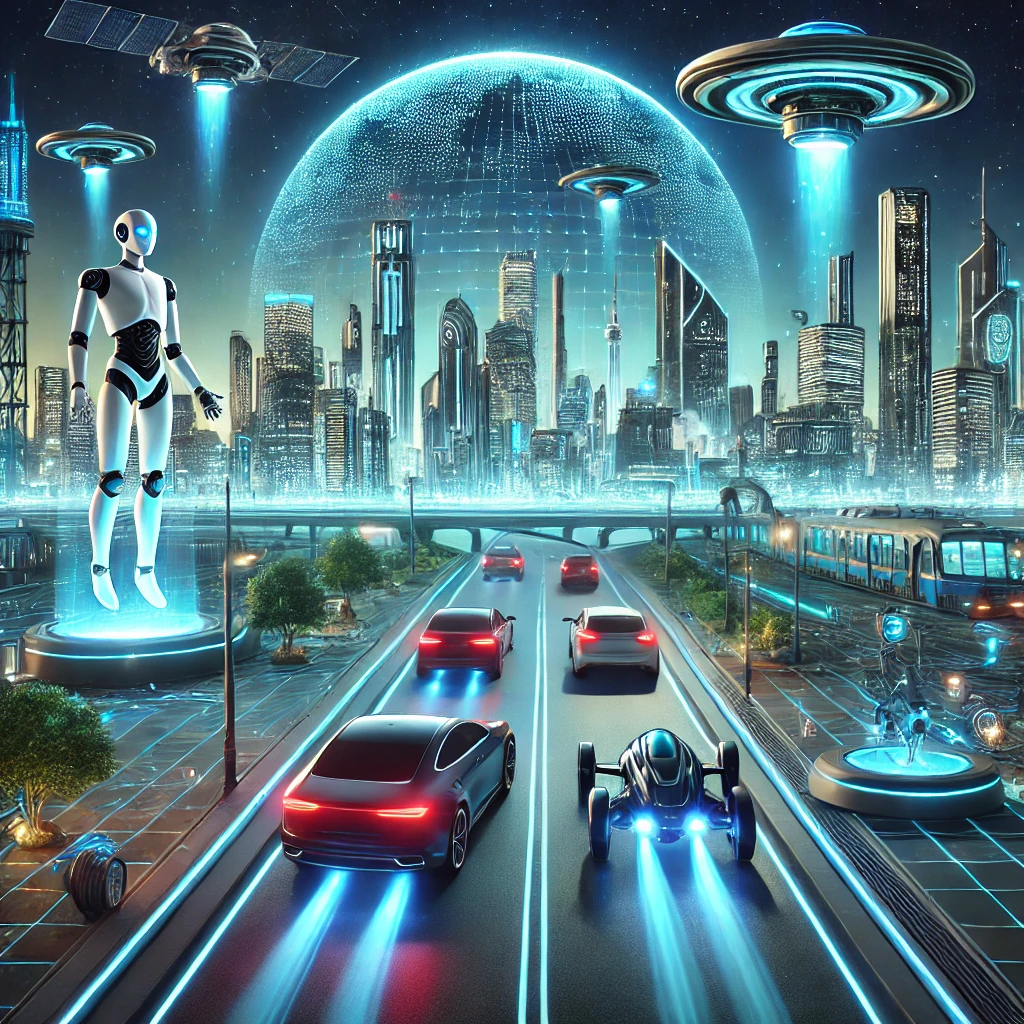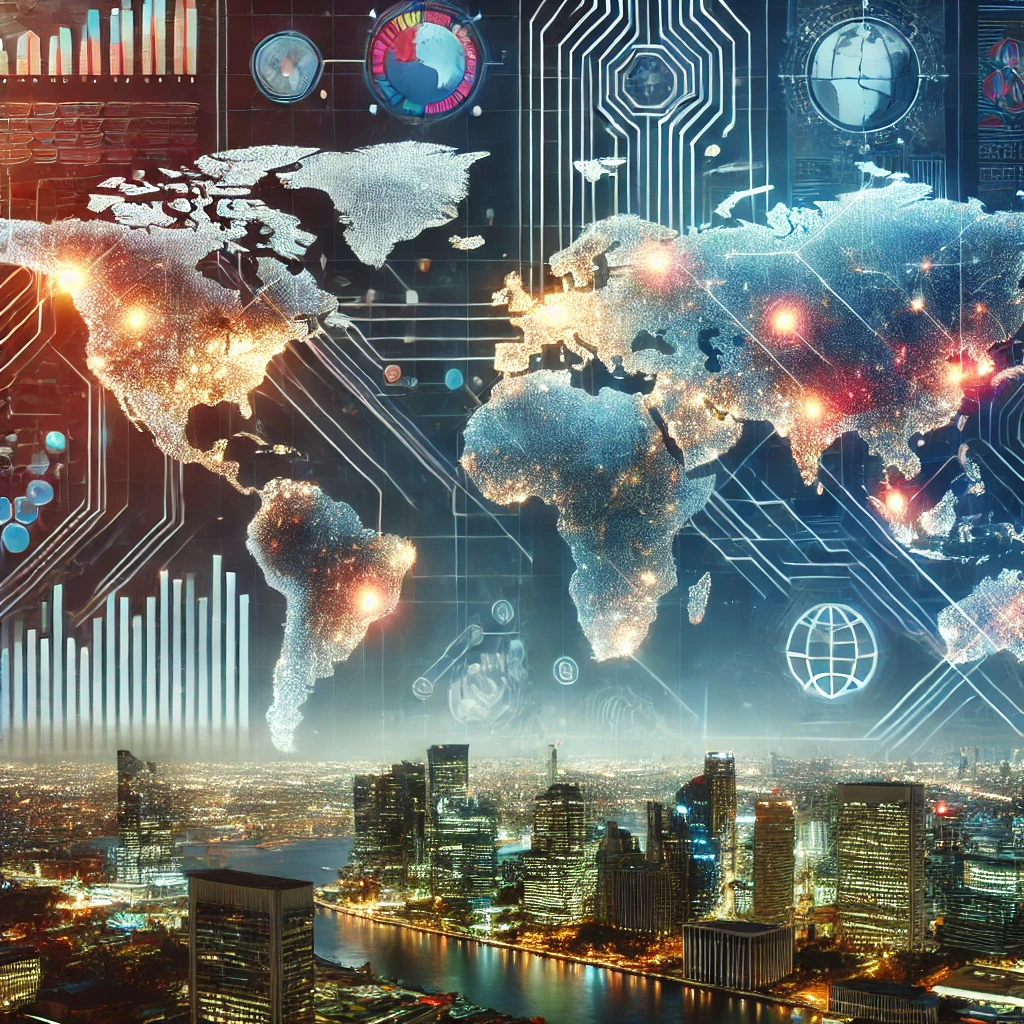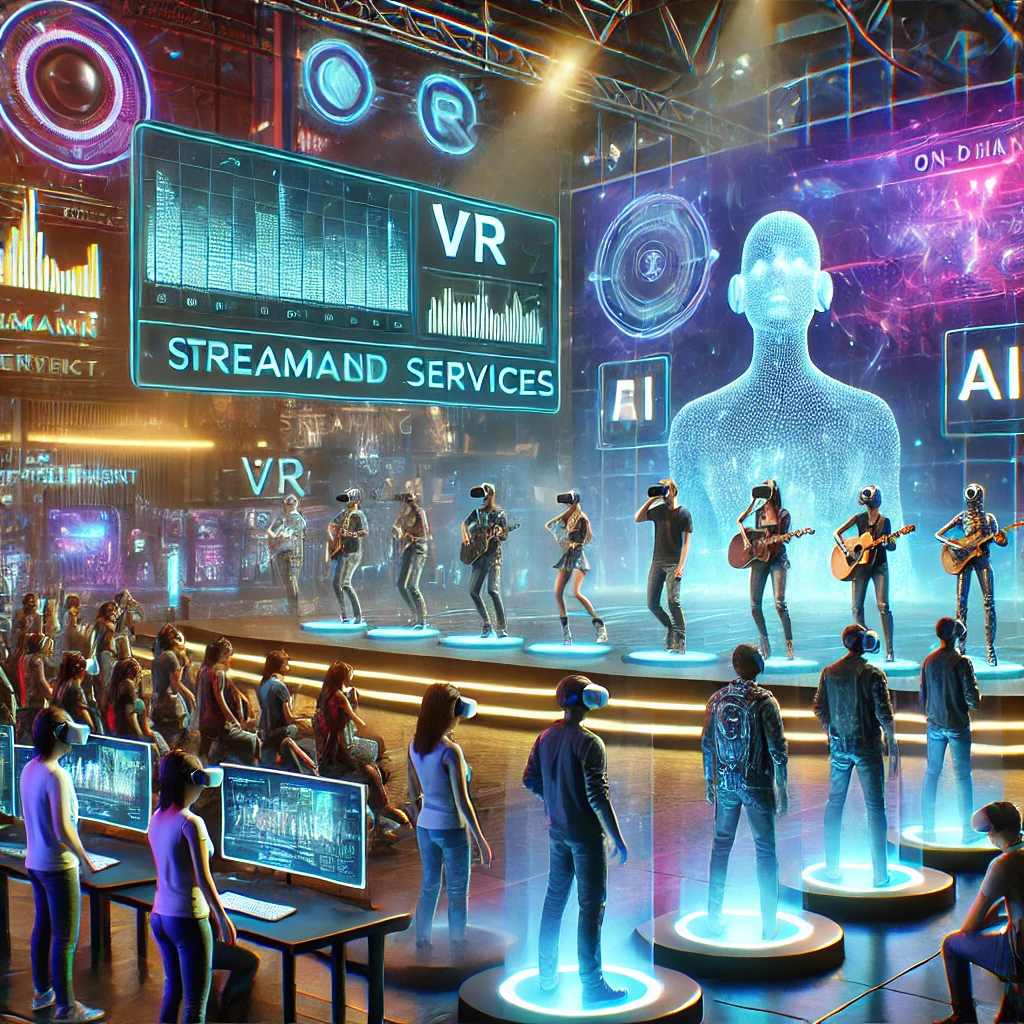Technology is advancing at an unprecedented pace, revolutionizing every aspect of our lives. From artificial intelligence (AI) and quantum computing to biotechnology and space exploration, the world is on the brink of a technological revolution. In this article, we will explore some of the most exciting innovations shaping the future and how they are set to transform industries and societies.
Artificial Intelligence and Automation
AI is one of the most transformative technologies of the 21st century. Machine learning and deep learning algorithms are enabling computers to perform tasks that traditionally required human intelligence, such as image recognition, language processing, and decision-making. Companies like Google, Amazon, and Tesla are heavily investing in AI to develop self-driving cars, smart assistants, and automation tools that enhance efficiency and productivity.
Automation is another game-changer, particularly in industries such as manufacturing, logistics, and customer service. Robotic Process Automation (RPA) is reducing the need for human intervention in repetitive tasks, leading to increased efficiency and cost savings for businesses. While automation raises concerns about job displacement, it also creates new opportunities in AI development, data analysis, and human-AI collaboration.
Quantum Computing: A New Era of Computing Power
Quantum computing is poised to revolutionize the way we solve complex problems. Unlike traditional computers that process information using bits (0s and 1s), quantum computers use qubits, allowing them to perform calculations at an exponentially faster rate. Companies like IBM, Google, and startups like Rigetti Computing are making significant strides in quantum computing research.
Potential applications of quantum computing include drug discovery, cryptography, financial modeling, and optimizing supply chains. For example, pharmaceutical companies can use quantum simulations to accelerate the development of new drugs, reducing costs and timeframes.
The Rise of 5G and Connectivity
The rollout of 5G networks is set to revolutionize the way we connect to the internet. With faster speeds, lower latency, and increased capacity, 5G will enable advancements in smart cities, IoT (Internet of Things) devices, and autonomous vehicles. Industries such as healthcare, education, and entertainment will benefit from ultra-fast connectivity, enabling innovations such as remote surgery, virtual reality learning, and seamless streaming.
As 5G technology becomes more widespread, it will also pave the way for the adoption of the metaverse—a virtual world where people can interact, work, and socialize in immersive digital environments.
Biotechnology and Healthcare Innovations
Biotechnology is transforming healthcare with groundbreaking innovations in genetics, personalized medicine, and regenerative therapies. CRISPR gene-editing technology is revolutionizing medicine by allowing scientists to edit genes and potentially cure genetic disorders.
Additionally, wearable technology and AI-driven diagnostics are improving early disease detection and patient monitoring. Devices like smartwatches can track heart rates, oxygen levels, and other vital signs, alerting users and healthcare providers to potential health risks. Telemedicine has also gained traction, allowing patients to consult doctors remotely, improving access to healthcare, especially in remote areas.
Space Exploration and Colonization
The space industry is undergoing a renaissance, with private companies like SpaceX, Blue Origin, and NASA leading ambitious missions beyond Earth. The development of reusable rockets has significantly reduced the cost of space travel, making space exploration more feasible than ever before.
Mars colonization, asteroid mining, and space tourism are becoming more realistic goals. SpaceX’s Starship aims to transport humans to Mars within the next decade, potentially paving the way for interplanetary colonization. Furthermore, advancements in satellite technology are improving global communication and Earth observation, helping us monitor climate change and natural disasters more effectively.
Blockchain and the Future of Finance
Blockchain technology is disrupting traditional finance with decentralized solutions that enhance security, transparency, and efficiency. Cryptocurrencies like Bitcoin and Ethereum are challenging conventional banking systems, offering decentralized financial transactions with reduced fees and improved accessibility.
Beyond cryptocurrencies, blockchain is being integrated into supply chain management, digital identity verification, and smart contracts. Governments and financial institutions are exploring Central Bank Digital Currencies (CBDCs) to modernize payment systems and reduce reliance on cash transactions.
Sustainable Technology and Green Energy
As climate change becomes a pressing global issue, technology is playing a crucial role in driving sustainability. Innovations in renewable energy sources such as solar, wind, and hydrogen fuel cells are reducing our dependence on fossil fuels. Electric vehicles (EVs) are gaining popularity, with companies like Tesla and Rivian pushing the boundaries of battery technology and energy efficiency.
Smart grids, energy-efficient buildings, and carbon capture technologies are also emerging as solutions to reduce greenhouse gas emissions. The transition to a green economy is not only necessary for environmental sustainability but also for creating new jobs in clean energy sectors.
Conclusion
The future of technology is filled with exciting possibilities that will redefine the way we live, work, and interact with the world. From AI-driven automation and quantum computing to space exploration and sustainable innovations, technological advancements are shaping the next era of human civilization.
As we embrace these innovations, it is essential to consider ethical implications, cybersecurity concerns, and the societal impact of rapid technological change. The key to a successful future lies in balancing progress with responsibility, ensuring that technology serves humanity for the betterment of all.
With continuous research and innovation, the coming decades will likely witness remarkable breakthroughs that once seemed like science fiction. The future is now, and technology will continue to be the driving force behind a smarter, more connected, and more sustainable world.






